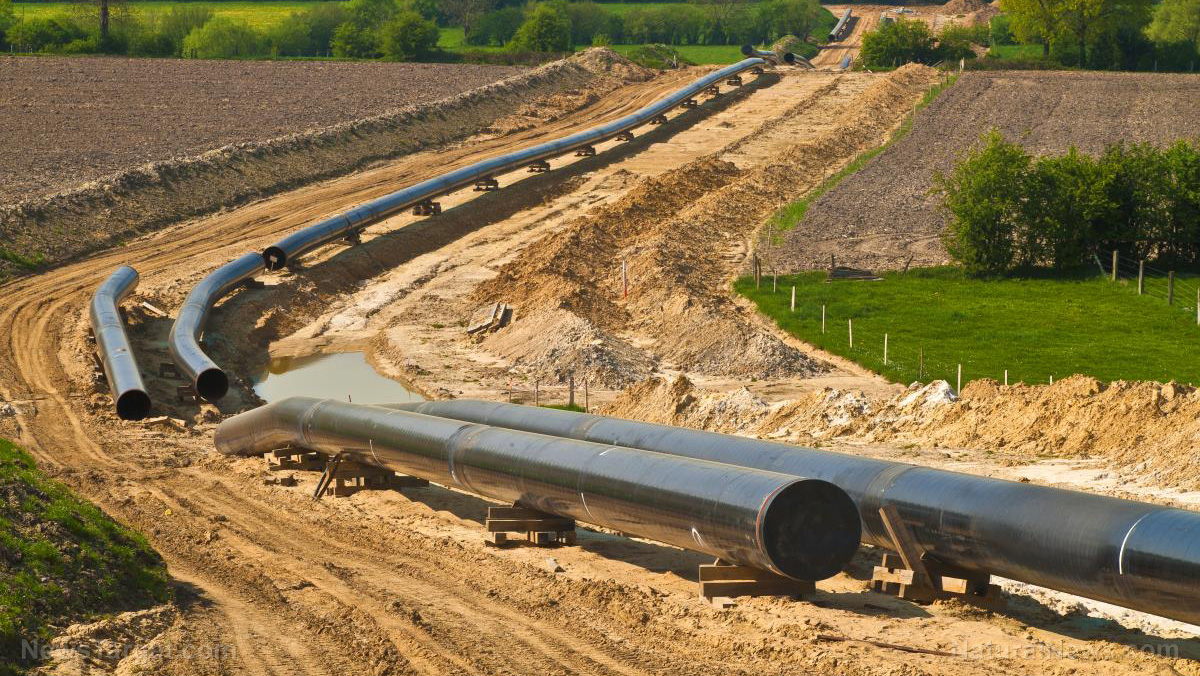 Parler
Parler Gab
Gab
- Nippon Steel’s $14.9B acquisition of U.S. Steel signals a resurgence of carbon-intensive manufacturing in the U.S.
- Saskatchewan, Canada, defies federal climate rules, extending coal-fired power plants beyond 2030.
- ESG-aligned financial firms like Citibank and Goldman Sachs facilitated deals contradicting their Net Zero pledges.
- Fossil fuels remain dominant globally, powering 80% of energy needs as China adds 106 GW of coal capacity in 2024.
- Decarbonization narratives collapse, with energy security and cost stability prioritized over climate ideals.
Nippon Steel deal smashes green illusions: Reviving carbon-intensive industry
On June 18, Nippon Steel’s takeover of Pittsburgh-based U.S. Steel created a global steelmaking titan with 86 million metric tons of annual production. The deal explicitly reasserts fossil fuels’ role in energy-dense industries: steel production relies on coal and natural gas, with no viable replacement from renewables. “Blast furnaces and coke ovens are fueled by carbon-based energy. Period,” stated Nippon Steel in its merger announcement. The acquisition’s true rupture came from its backers: ESG-obsessed banks like Citibank and Goldman Sachs openly enabled the deal, greasing the wheels for a “carbon-heavy industrial renaissance.” Their hypocrisy is stark. In 2023, these firms vowed to align lending with climate goals, yet their involvement in this $14.9B deal—directly funding emissions-intensive operations—exposes the hollow pledges of green finance.Saskatchewan defies Ottawa, redoubles on coal
Former Canadian Prime Minister Justin Trudeau’s Climate Electricity Regulations called for coal phaseouts by 2030. Saskatchewan countered with clarity. “We’re not going to let federal politicians turn off the lights,” said Energy Minister Dustin Duncan. The province’s calculus is straightforward: coal’s reliability and affordability ensure energy security and economic stability. Reliance on renewables, which provide marginal gains in energy output, is politically untenable. The Saskatchewan backlash mirrors global trends. In 2024, China greenlit 106 gigawatts of new coal capacity—enough to power a nation the size of Switzerland. Beijing’s infrastructure investments, paired with its control over critical minerals like copper and lithium, underscore a blunt reality: decarbonization is a Western luxury.Unraveling the climate fantasy: Fossil fuels secure global dominance
Decarbonization’s collapse is no surprise. In 2023, fossil fuels supplied 80% of global primary energy. Renewable energy’s share, despite trillions in subsidies, remains stagnant. Nippon Steel’s merger and Saskatchewan’s defiance reflect a broader truth: the climate agenda’s “net zero” rhetoric cannot outpace physics. Wind and solar cannot power steelmaking, absent breakthroughs in energy storage—technologies that remain theoretical. The IPCC’s 2-degree Celsius target, once a sacred goal, now looks unattainable. Even radical measures, like mass carbon capture, face physical and economic limits. Markets have already spoken: oil prices surged 40% in 2024 as geopolitical tensions flared. Saudi Arabia’s price war to cripple U.S. shale—a battle driven by fossil fuel dominance—strikes at the heart of decarbonization’s absurdity.The post-illusion era: Fossil fuels, the unsung pillar of progress
The North American decarbonization charade is dead. Its epitaph reads: “Too little, too late, and entirely unnecessary.” The laws of physics and market demand have outflanked climate policies. For industries and governments, the choice is clear: prioritize energy security, economic growth and fiscal reality— keystones of true human flourishing—or cling to climate myths that risk plunging the world into darkness. As greenhouse gas targets fade, the lesson is visceral: progress does not respect politics, only pragmatism. Sources for this article include: WattsUpWithThat.com MarcellusDrilling.com RealClearMarket.comHealth Ranger Report: Marjory Wildcraft explains why off-grid survival skills are important
By Kevin Hughes // Share
Humanitarian city or concentration camp? Controversy surrounds Israel’s Rafah plan
By Belle Carter // Share
Netanyahu signals more strikes on Iran over “surviving” uranium stockpiles
By Cassie B. // Share
Governments continue to obscure COVID-19 vaccine data amid rising concerns over excess deaths
By patricklewis // Share
Tech giant Microsoft backs EXTINCTION with its support of carbon capture programs
By ramontomeydw // Share
Germany to resume arms exports to Israel despite repeated ceasefire violations
By isabelle // Share










